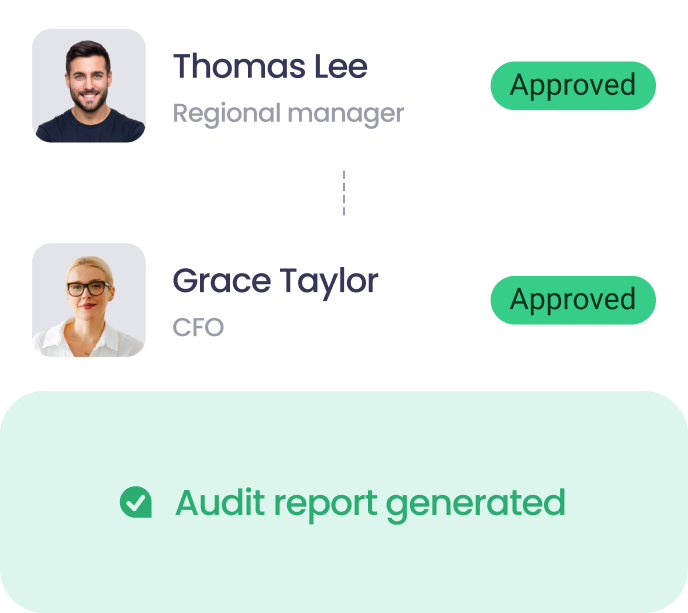
Six key priorities for finance teams in 2025
To understand how finance teams are tackling 2025, ApprovalMax, Mayday, and Joiin asked finance professionals about their plans and priorities. Here's what they're focusing on this year.

Finance teams have a lot on their plate. Not only are they expected to do more with less in the face of economic uncertainty, they’re working in an increasingly complex business environment awash with more software systems than you can count. When you add changing compliance requirements to the mix, it’s shaping up as a busy year.
To understand how finance teams are responding, ApprovalMax, Mayday, and Joiin asked finance professionals across Australia and the UK about their plans. Here's what they're focusing on for 2025.
1. Reducing manual work
Despite using modern accounting software, finance teams still spend too much time on manual tasks. Nearly half (46%) say their month-end process involves too much manual work, while 41% use a mix of automation and spreadsheets. Only 13% have mostly automated their month-end closing.
This creates delays. About one-third (35%) of teams need 6-10 days to close their books each month, while 20% take even longer. Just 14% finish within three days.
The biggest time-wasters include chasing approvals, matching accounts between company entities, combining data from different business units, and repeating the same tasks monthly.
2. Improving financial reporting
Creating combined reports remains difficult for companies with multiple business units. Only 11% of finance professionals are very satisfied with their current reporting process, while 42% aren't satisfied at all.
Information often exists in different places, numbers don't always match up, and too much time goes into manual data entry. By the time reports are ready, the information is often outdated.
While special tools like Joiin help some teams, Excel remains the main tool for many – not by choice, but by necessity. For 2025, teams want reporting systems that work automatically and provide clear insights without endless spreadsheet work.
3. Getting real-time financial views
Waiting until month-end to understand business performance is no longer good enough. An overwhelming 95% of finance leaders say real-time reporting matters, with 61% say it’s very important.
Yet there's a gap between wanting real-time data and having it. Only a quarter of respondents feel completely confident they can produce accurate real-time numbers.
This affects everyone from sales teams tracking targets to executives making quick decisions. Closing this gap is a top priority for finance teams in 2025.
4. Strengthening internal financial controls
With stricter rules and growing fraud risks, finance teams are improving their protective measures. Yet only 18% feel very confident in their current controls, while more than a quarter (27%) lack confidence entirely.
Most organisations have basic safeguards – approval workflows, separation of duties, and audit trails. However, these often exist separately rather than working together.
Finance teams now want to automate policy enforcement, watch for unusual activity in real-time, create consistent controls across all parts of the business, and connect approval systems with payment systems.
5. Using AI where it makes sense
Despite all the buzz around AI, few finance teams actually use it. Only 10% currently use AI in their finance processes. Most (63%) aren't using it yet but are interested.
Finance teams are most interested in AI applications that either reduce risk or save time: spotting fraud, predicting cash flow, automatically sorting invoices, and making reconciliations easier.
Forward-thinking teams are getting their data and processes ready so AI will actually help when they start using it.
6. Getting more from existing technology
Perhaps the most telling finding: 73% of finance professionals believe they're not getting full value from their current technology.
When asked what would help them use existing tools better, teams mentioned better connections between systems, more training and support, stronger internal processes, and clearer ownership.
This points to a simple truth. Finance teams know they already have good tools – they just need help using them effectively.
Moving forward
If you're facing similar challenges – long close cycles, disconnected data, or underused technology – you're not alone. These issues affect finance teams of all sizes.
The path forward isn't about buying more tools. It's about creating smarter processes, connecting your existing systems better, building confidence in your reporting, and helping your team work with greater clarity.
In 2025, success will come not from having more technology, but from better using what you already have.
Ready to simplify your approval process?
Set up a system of checks and balances for your financial operations.
Multi-step, multi-role approval workflows for financial documents.

Auto-generated audit reports for each approved item.

Get alerts for fraudulent activity and protect against it happening.
Leave printing in the past with fully digitised workflows.



